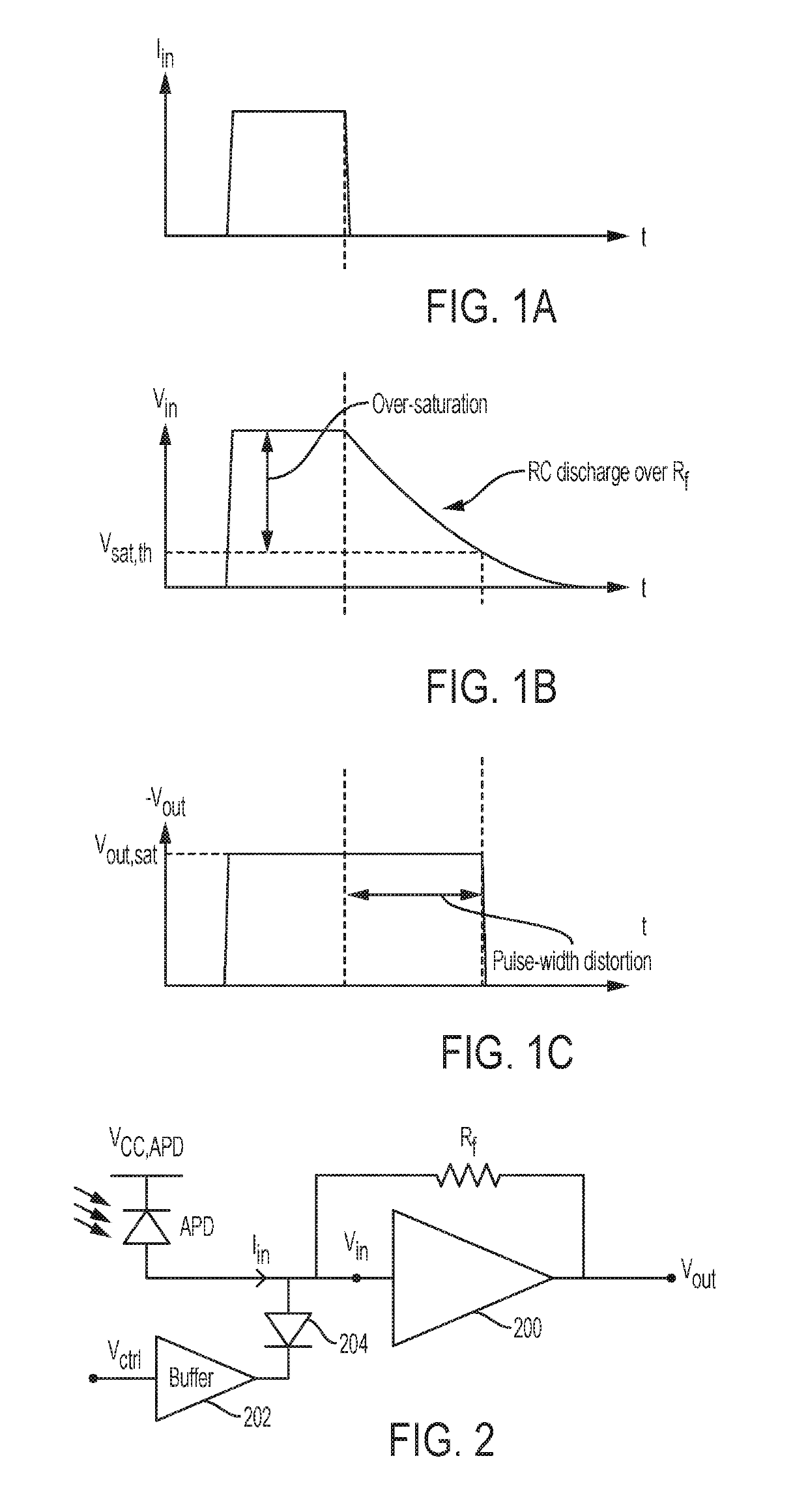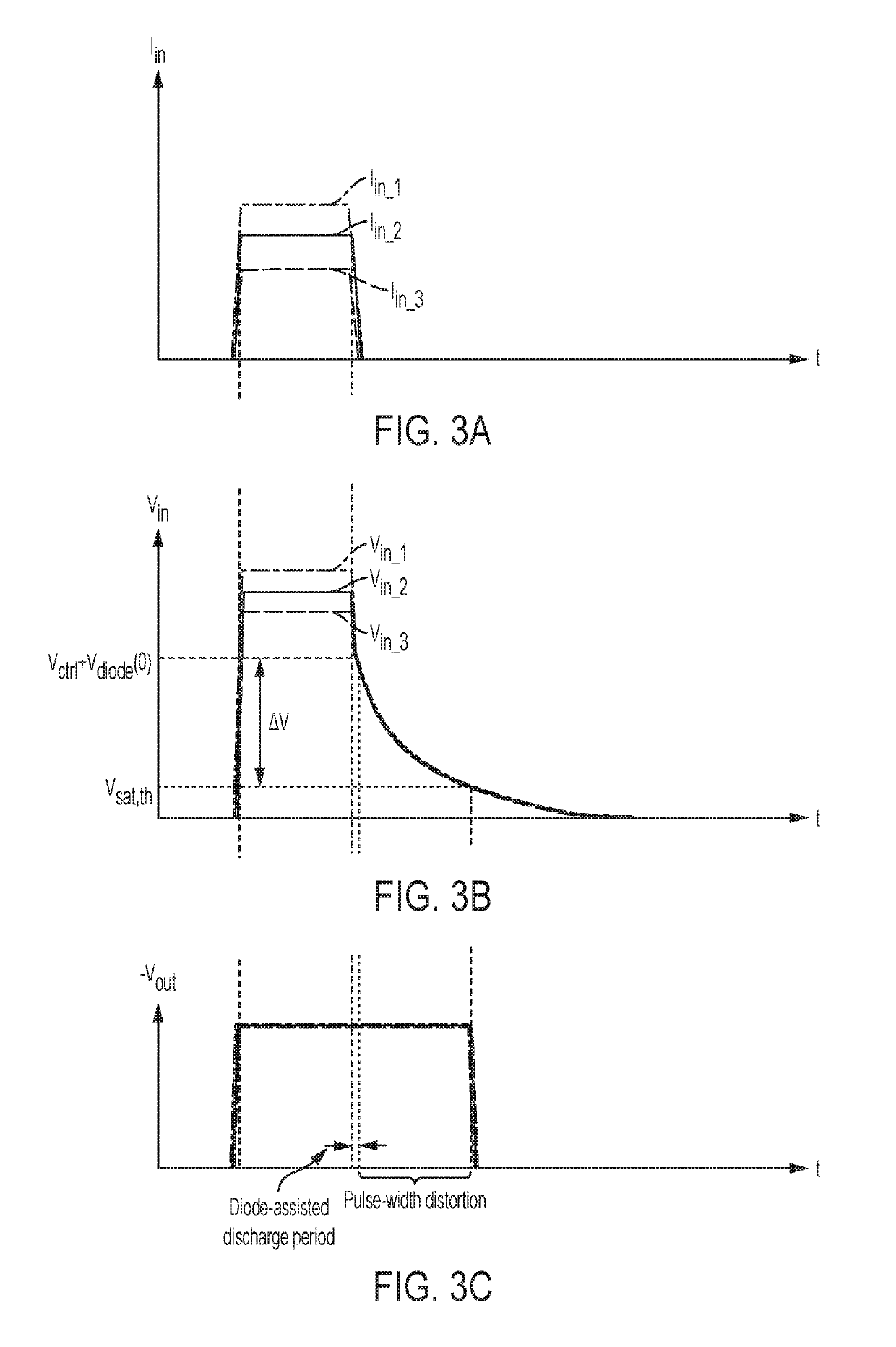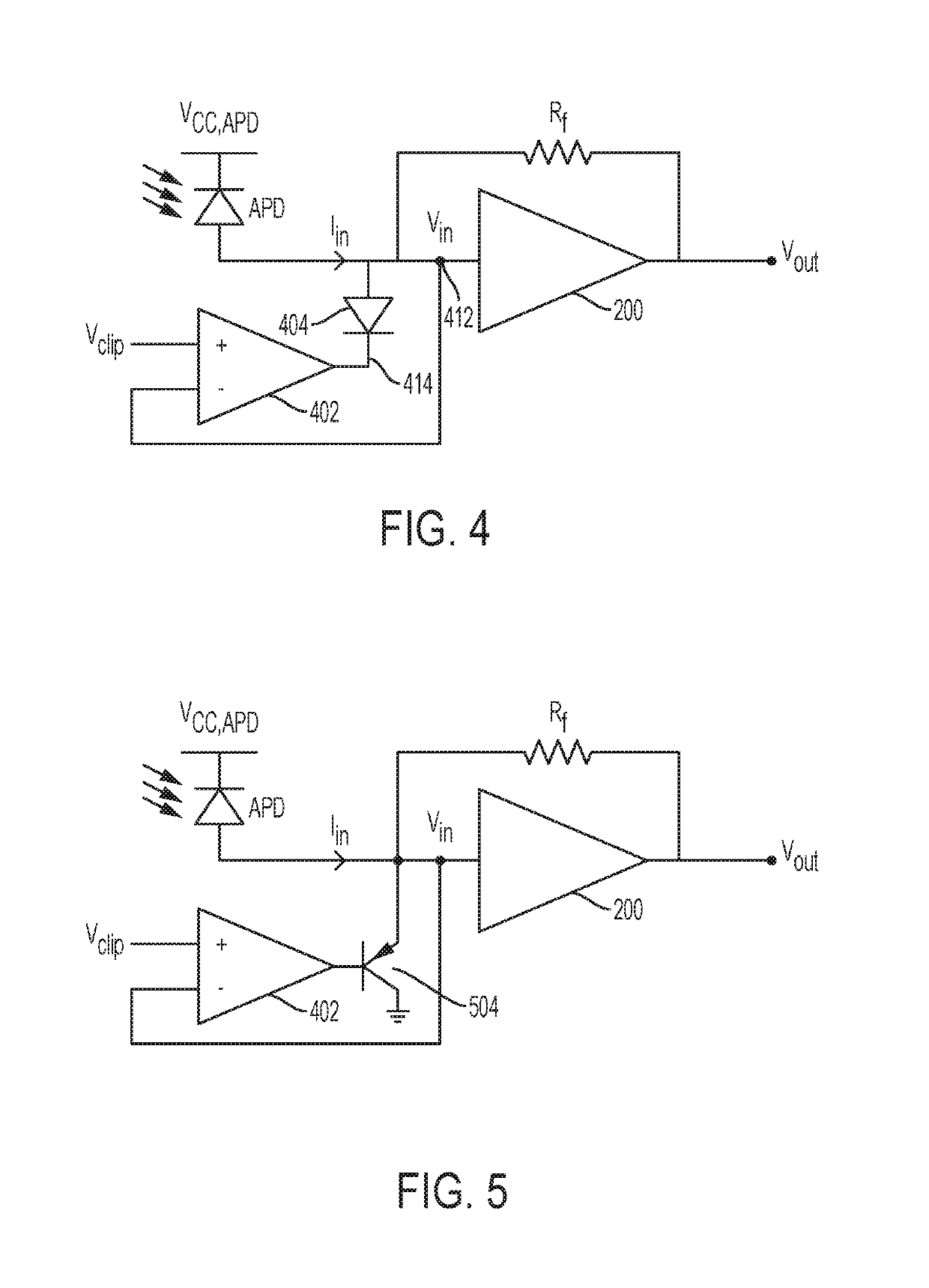High dynamic range analog front-end receiver for long range LIDAR
a lidar and analog front-end technology, applied in the field of remote sensing, can solve the problems of reducing the response time and reducing the capacitance of the junction, so as to prevent the saturation of the tia, improve the regulation of the input voltage of the tia, and reduce the effect of the response tim
- Summary
- Abstract
- Description
- Claims
- Application Information
AI Technical Summary
Benefits of technology
Problems solved by technology
Method used
Image
Examples
Embodiment Construction
[0026]The pulsed time-of-flight (TOF) laser ranging method is based on the measurement of a transit time (ΔT) of a short laser pulse (width for example about 3 ns) to an optically visible target and back to the front-end receiver. The measured transit time can be converted to a distance (R) between the target and the receiver.
[0027]LIDAR based on pulsed TOF measurements is particularly appealing in environmental perception systems where a high measurement speed (>1000 results / s) is needed, where the dynamics of the received echo can be very wide (>1:1000) and where an accurate distance measurement (<1 cm) is needed even with a single transmitted pulse to distances of up to tens of meters to non-cooperative targets. Examples of this kind are anti-collision systems and scanners in traffic applications. For example, in automotive applications the dynamic range may exceed 1:100,000. In the case of a mirror-like reflection or a reflection from a close object, a very high input signal may...
PUM
 Login to View More
Login to View More Abstract
Description
Claims
Application Information
 Login to View More
Login to View More - R&D
- Intellectual Property
- Life Sciences
- Materials
- Tech Scout
- Unparalleled Data Quality
- Higher Quality Content
- 60% Fewer Hallucinations
Browse by: Latest US Patents, China's latest patents, Technical Efficacy Thesaurus, Application Domain, Technology Topic, Popular Technical Reports.
© 2025 PatSnap. All rights reserved.Legal|Privacy policy|Modern Slavery Act Transparency Statement|Sitemap|About US| Contact US: help@patsnap.com



